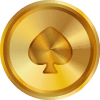Roulette strategi? Hmmm ... när jag började med hasardspel för nästan två år sedan, föredrog jag Fibonacci-sekvensen - det var väldigt roligt på saker som dubbla gatusatsningar ... men så småningom stöter du på bankrulle eller bordsgränser.
Hoppa till idag ... Jag är inte säker på att jag vill beskriva / detaljera vadslagningsmodellerna jag utvecklar offentligt ... men jag kommer att säga:
) de flesta vet att det som händer i ett tidigare snurr / hand inte påverkar nästa snurr / hand ... och ändå utvecklar de satsningssystem (som progressiva) som bygger på att vinna eller förlora den föregående handen. Jag håller på att utveckla ett system baserat på grupper/uppsättningar som låter medelvärdena spela ut lite mer. Vad det här ser ut är att när jag sätter mig vid ett roulettebord kommer jag att leta efter minst 40 snurr.
) de flesta människor uppmärksammar andelen av husets fördelar ... mer och mer ser jag att jag klarat det och fokuserar på standardavvikelsen / variansen / volatiliteten. Till exempel har Three Card Poker en högre husfördel än Blackjack - ungefär 3,6 % ante och 2,0 % spel till 0,5 % , men variationen i variansen är bara 1,6 % till 1,2 %. Amerikansk Roulette har en husfördel på 5,3 % ... men variansen kan vara låg (variansen ändras över typen av satsning på ett roulettebord, men outside bets har rimlig varians och kan spelas).
Roulette Strategy? Hmmm ... when I started with gambling almost two years ago, I was favoring the Fibonacci sequence - it was a lot of fun on things like double street bets ... but eventually you run into bankroll or table limits.
Jumping to today ... I am not sure I want to describe / detail the betting models I am developing publicly ... but I will say:
) most people know that what happens in a previous spin / hand does not impact the next spin / hand ... and yet they develop betting systems (like progressives) that are based on winning or losing the previous hand. I am developing a system based on groups / sets that allows the averages to play out a little more. What this looks like is that when I sit down to a roulette table, I am going to be looking for at least 40 spins.
) most people pay close attention to the percentage of house edge ... more and more I am looking passed that and focusing on the standard deviation / variance / volatility. For example, Three Card Poker has a higher house edge than Blackjack - roughly 3.6% ante and 2.0% play to 0.5% , but the change in variance is only 1.6% to 1.2%. American Roulette has a house edge of 5.3% ... but the variance can be low (the variance changes across the type of bet on a roulette table, but the outside bets have reasonable variance and can be played).
Automatiskt översatt:














